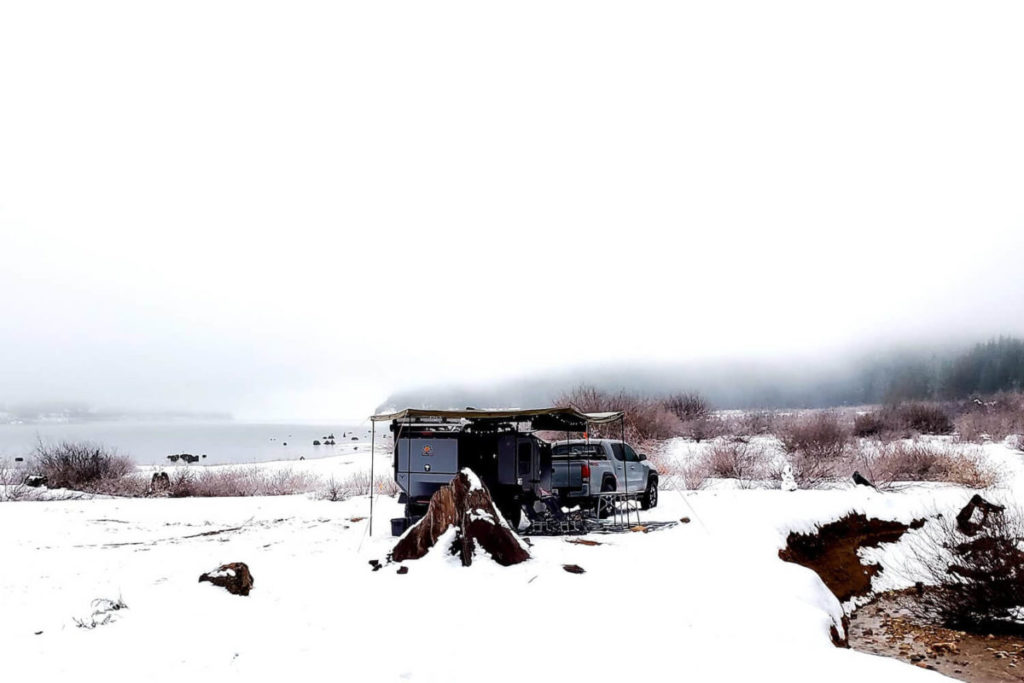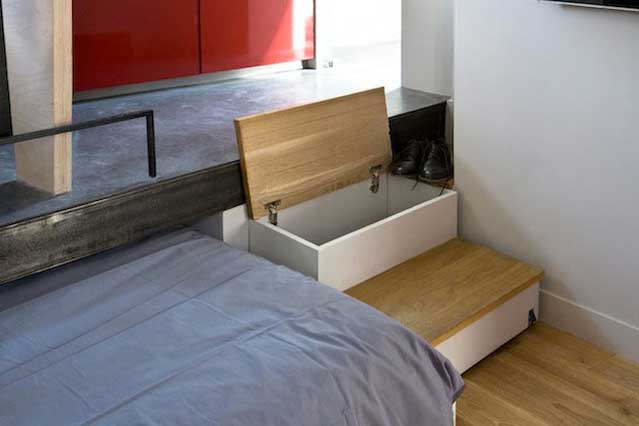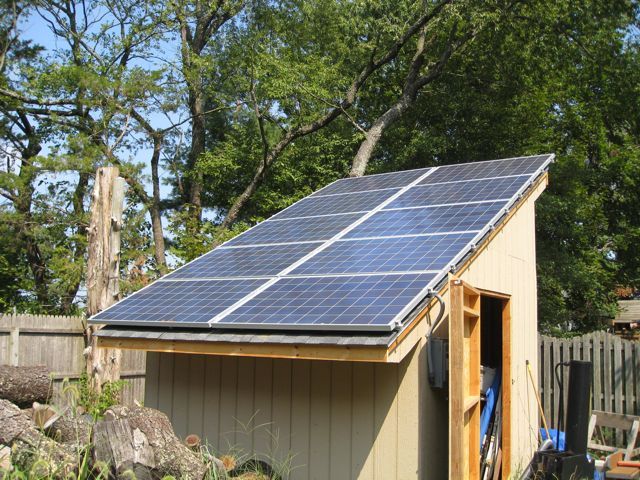Living off the grid during a long winter offers numerous advantages, from reduced energy costs and increased self-sufficiency to improved health and wellbeing.
We will explore these benefits in detail and offer practical tips for making the most of living off the grid during the coldest months of the year.
By embracing off-grid living, individuals and families can not only survive but thrive during a long winter, while also reducing their carbon footprint and dependence on external utilities.
Let’s dive in and explore the many advantages of this self-sufficient lifestyle.
Energy Independence
Living off the grid allows you to generate your own energy through renewable sources such as solar, wind, and hydro, which can reduce your reliance on the grid and provide a sense of energy independence.
With a comprehensive off-grid energy system, you can harness the power of nature to generate electricity, heating, and hot water, all while minimizing your carbon footprint.
The initial investment may be higher, but over time, you can save money on energy bills and enjoy a self-sufficient lifestyle.
Moreover, with advancements in technology, the efficiency and affordability of renewable energy systems have improved significantly, making it a more accessible option for individuals and families.
By taking control of your energy production, you can not only reduce your reliance on the grid but also contribute to a sustainable future for generations to come.
Cost Savings
Generating your own energy can save you money on your energy bills, especially during long winters when energy consumption is high.
By generating your own energy through solar or wind power, you can significantly reduce your energy bills, especially during long winters when energy consumption is high.
According to the U.S.
Department of Energy, the average American household spends over $1,500 per year on energy bills.
However, by harnessing the power of the sun or wind, you can generate a portion of your energy needs and reduce your reliance on the grid.
This can lead to significant cost savings, as you won’t be paying for the full amount of energy you consume.
In fact, a study by the National Renewable Energy Laboratory found that residential wind turbines can save homeowners between $300 and $700 per year, while solar panels can save between $500 and $1,500 per year.
These savings can add up over time, potentially resulting in thousands of dollars in cost savings over the life of the system.
Plus, with the cost of renewable energy systems decreasing over time, now is a great time to invest in your own energy generation and start saving money on your energy bills.
Reliability
Off-grid energy systems can provide a reliable source of energy even during long winters when the grid may be unreliable due to weather conditions or maintenance shutdowns.
Off-grid energy systems offer a reliable source of energy even during long winters, when the grid may be unreliable due to weather conditions or maintenance shutdowns.
Unlike traditional grid-tied systems, off-grid systems are not dependent on the utility grid and can continue to operate independently, providing a consistent and reliable source of energy for your home or business.
This is particularly important during winter months, when severe weather conditions can cause power outages and disruptions to the grid.
With an off-grid system, you can rest assured that you will have access to a reliable source of energy, no matter what the weather brings.
Off-grid systems can be equipped with battery backup systems, which can store excess energy generated during periods of low consumption and provide a reliable source of energy during periods of high consumption.
This ensures that you have a reliable source of energy even during extended periods of cold weather, when energy demands are highest.
Investing in an off-grid energy system can provide peace of mind and ensure that you have a reliable source of energy, even during long winters.
Self-Sufficiency
Living off the grid can promote self-sufficiency and allow you to produce and store your own food, heat your home with renewable energy, and collect and treat your own water.
Living off the grid can be an empowering and fulfilling experience that promotes self-sufficiency and sustainability.
By producing and storing your own food, you can enjoy fresh and healthy meals without relying on grocery stores or farmers’ markets.
You can cultivate a variety of crops using organic farming methods, including fruits, vegetables, grains, and legumes.
In addition, you can harness renewable energy sources like solar, wind, and hydro power to heat your home and provide electricity.
This not only reduces your carbon footprint but also saves you money on energy bills.
Furthermore, living off the grid allows you to collect and treat your own water.
You can install a rainwater harvesting system to collect and store rainwater, which can be used for drinking, cooking, and irrigation.
You can also implement a grey water system to reuse water from sinks, showers, and washing machines.
By treating and purifying your own water, you can enjoy clean and safe drinking water, without relying on municipal water supplies.
Living off the grid also promotes self-reliance and creativity, as you must find innovative solutions to meet your daily needs.
For instance, you can create your own composting toilet to reduce waste and maintain a healthy ecosystem.
You can also learn to repair and maintain your own equipment, such as generators, pumps, and solar panels.
By embracing self-sufficiency, you can create a more resilient and fulfilling lifestyle that is independent of outside resources.
Improved Resilience
Off-grid living can improve your resilience during long winters by allowing you to maintain essential functions and services even when the grid is down.
By transitioning to off-grid living, you can significantly enhance your resilience during long winters.
Off-grid systems allow you to maintain essential functions and services even when the grid is down, ensuring that you can continue to power your home, access clean water, and provide for your family’s basic needs.
For example, an off-grid solar panel system can provide a reliable source of renewable energy, while a rainwater harvesting system can ensure a consistent supply of clean water.
Off-grid living often requires a greater reliance on local resources and community support, fostering a stronger sense of resilience and self-sufficiency.
By embracing off-grid living, you can not only weather long winters with greater ease but also gain a deeper appreciation for the natural world and the importance of community.
Health Benefits
Living off the grid can expose you to fresh air, sunlight, and physical activity, which can improve your overall health and well-being.
Living off the grid can provide numerous health benefits, thanks to the abundance of fresh air, sunlight, and physical activity that comes with this lifestyle.
By rejecting the conventional grid system, you can escape the constant bombardment of pollutants and toxins that are often found in urban areas.
Instead, you can breathe in the fresh, clean air that is characteristic of rural areas, which can help to improve your lung function and overall respiratory health.
The abundance of natural sunlight in off-grid living can provide your body with the necessary vitamin D and UV radiation it needs to function optimally, reducing your risk of developing conditions like osteoporosis and seasonal affective disorder.
Perhaps most importantly, living off the grid can encourage physical activity, as you may need to manually pump water, generate electricity, or tend to your garden.
This increased physical activity can help to improve your cardiovascular health, muscle strength, and flexibility, while also reducing your risk of developing chronic diseases like heart disease and diabetes.
By adopting an off-grid lifestyle, you can not only improve your physical health, but also your mental well-being, as you become more connected to nature and more self-sufficient.
Increased Property Value
Off-grid properties often have higher property values due to their energy independence and self-sufficiency, which can be beneficial when selling your property.
The value of an off-grid property can be significantly higher compared to a traditionally grid-connected property, especially when it comes to selling the property.
Off-grid properties offer energy independence and self-sufficiency, which can be highly appealing to potential buyers who are looking for a sustainable and cost-effective living solution.
Moreover, the lack of reliance on public utilities and the ability to generate one’s own power can increase the property’s value by as much as 20-30%.
This is especially true for eco-conscious buyers who are willing to pay a premium for properties that align with their values and contribute to a more sustainable future.
Off-grid properties often have unique features such as solar panels, wind turbines, and rainwater harvesting systems, which can be valuable selling points.
Overall, the increased property value of off-grid properties can provide a significant financial gain for property owners who are looking to sell their properties in the future.
Reduced Carbon Footprint
Living off the grid can help reduce your carbon footprint by minimizing your reliance on fossil fuels and promoting renewable energy sources, which can help combat climate change.
Living off the grid can significantly reduce your carbon footprint and help combat climate change by minimizing your reliance on fossil fuels and promoting renewable energy sources.
By harnessing the power of solar, wind, and hydro energy, you can reduce your reliance on fossil fuels and decrease your carbon emissions.
For example, solar panels can provide electricity for your home, while wind turbines can power your water pump and other appliances.
Using energy-efficient appliances and implementing energy-saving practices such as turning off lights and electronics when not in use can further reduce your carbon footprint.
By living off the grid, you can significantly reduce your carbon emissions and contribute to a more sustainable future for our planet.
Want More? Dive Deeper Here!
Hey there! If you’re the type who loves going down the rabbit hole of information (like we do), you’re in the right spot. We’ve pulled together some cool reads and resources that dive a bit deeper into the stuff we chat about on our site. Whether you’re just killing time or super into the topic, these picks might just be what you’re looking for. Happy reading!
- (PDF) Off-the-Grid in an On-Grid Nation: Household Energy Choices, Intra-Community Effects, and Attitudes in a Rural Neighborhood in Utah
- (PDF) Off-grid Living for the Normative Society: Shifting Perception and Perspectives by Design
- Advantages of Solar Energy: Study Finds Solar Power Lowers Cost of Energy for All Ratepayers and Causes Greater Reduction in Greenhouse Gases | Bostonia | BU Alumni Magazine






